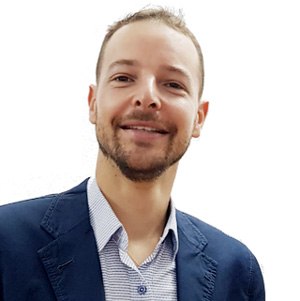Guillaume is a French expat who’s been living in Vietnam for four years. He owns several companies and helps teach expats not only how they can live in Vietnam to the fullest, but also how to invest and incorporate businesses. Check out his website, m ovetoasia.com.
Read more about expat life in our Expat Arrivals Vietnam country page and Expat Experiences in Vietnam.
About Guillaume
Q: Where are you originally from?
A: I am from France, more precisely, Toulouse.
Q: Where are you currently living?
A: I live in Ho Chi Minh City (HCMC), also called Saigon.
Q: When did you move here?
A: I travelled for a couple of years in Southeast Asia before deciding to settle down in HCMC four years ago.
Q: Is this your first expat experience?
A: No, before living in Vietnam, I was based in Phnom Penh, Cambodia, for less than a year, and I also spent my internship after my master’s degree in Hong Kong.
Q: Why did you move; what do you do?
A: As I was working online, doing freelancing and web marketing for French companies, I took my backpack to travel in Asia. I fell in love with this part of the world and decided to settle down in Vietnam. After about one year, I founded movetoasia.com, a community to help foreign investors, small business owners and millennials to relocate, do business and invest in Southeast Asia.
Living in Ho Chi Minh City
Q: What do you enjoy most about Ho Chi Minh City? How would you rate the quality of life compared to France?
A: Vietnam, and especially HCMC, is a city with a lot of diversity. You can enjoy a bowl of noodles on the street (the traditional Pho soup) for less than $1, but you can also have a drink on top of one of the highest skyscrapers in the city if you want to have a taste of the ritzy lifestyle. The diversity and different choices of lifestyle we have on offer make our lives richer, diverse and fulfilled in different aspects.
Q: Any negative experiences? What do you miss most about home?
A: In COVID times, as most Asian countries have locked their borders, it can be difficult to go back to France to visit. Most of the expatriates decided to stay and live in Vietnam without leaving the country.
Q: What are the biggest adjustments you had to make when settling into expat life here? Did you experience any particular elements of culture shock?
A: Learning Vietnamese is one of the challenges that I haven’t yet managed to fully overcome. As most of the locals don’t speak English, learning the language is an important part of settling in Vietnam. Right now, I can have basic conversations, but I am not able to fully discuss everything on my mind, which is a bit frustrating.
Q: What’s the cost of living compared to home? Is there anything particularly expensive or particularly cheap in Vietnam?
A: I used to run a business in France, where maintaining a company and hiring staff is very expensive. In Vietnam, I can hire and subcontract with some companies or freelancers more easily as it’s not costly for similar results, especially in the IT field.
Q: How would you rate the public transport in Ho Chi Minh City? What is your most memorable experience of using Ho Chi Minh City’s transport system?
A: Ho Chi Minh City is THE city of the motorbikes. Everyone is used to taking a Grab (a taxi driver on a motorbike) that will take you to your location at a very competitive rate. After a few months of understanding the ways people drive, it is best to buy your own motorbike or scooter to be able to move around and be more independent. I experienced this in my first month of staying in the country. I decided to buy a Honda Win and drive across the country from HCMC to Hanoi. It’s a one-month trip, or 1,243 miles (2,000km), and I suggest that everyone do it if they wish to explore the country properly.
Q: How would you rate the healthcare in Ho Chi Minh City?
A: HCMC has a few international hospitals and clinics with international doctors. Although it isn’t cheap, all expatriates are able to get international health insurance to get their health-related costs refunded.
Q: What are the biggest safety issues facing expats living in Ho Chi Minh City? Are there any areas expats should avoid?
A: You have to beware of pickpockets, especially on the busy streets. If you need to take your phone out while close to the road, you should definitely be careful, as thieves may spot you and try to snatch your phone.
Q: How do you rate the standard of housing in Ho Chi Minh City? What different options are available for expats?
A: From a room in a local house to a brand-new condominium, there is a large choice of housing for foreigners who wish to relocate to Vietnam. Expats coming with families often rent villas in expat-friendly districts that have all the amenities nearby, such as fitness centres, malls, restaurants and international schools.
Q: Any areas or suburbs you’d recommend for expats to live in?
A: Foreigners coming to HCMC usually tend to settle in District 2, also called Thao Dien, or District 7. These districts have a lot of parks, gardens, and big roads, and they are close to all the facilities families are looking for, such as hospitals, schools, foreign restaurants, and so forth. There are also great condominiums that you can find in safe areas.
Meeting people and making friends in Ho Chi Minh City
Q: How tolerant are the locals of foreigners?
A: It might sound strange, but Vietnamese people tend to be very curious about foreign nationals. You won’t experience any discrimination, even if you don’t speak the language. Most of the locals will make you feel welcome and will show you respect and appreciation for any effort you put into understanding their culture, traditions, and way of living.
Q: Was meeting people and making friends easy? How did you go about meeting new people?
A: It is pretty easy to meet new people in big cities like HCMC, Danang or Hanoi. The expatriate community is large, and many people moved here alone, so they will be very open to making new friends. As there are a lot of events around culture, sport, business and other networking activities every week, it’s easy to meet new people who have the same interests as you.
Q: Have you made friends with locals, or do you mix mainly with other expats? What advice would you give to new expats looking to make friends with the locals?
A: I do have some local and foreign friends. It is easier to meet up with foreigners, but, as the turnover in the country is high, don’t expect those people to stay forever. On the other hand, it’s harder to meet locals, but you are certain to keep those friends for years if you plan to settle for a long period of time in Vietnam. Dating applications can be a good way to meet locals, and you can keep them as friends. As these apps are used by locals, people don’t only use them for their initial ‘dating goal’ but also to meet new people.
Working in Ho Chi Minh City
Q: Was getting a work permit or visa a relatively easy process?
A: As soon as you find a company to sponsor you and get you a work permit, you will be able to get a long-term visa to reside in Vietnam. Investors are also people that the country tends to attract, so there is some incentive to open a company and get a long-term residence visa for foreign investors.
Q: What is the economic climate in the city like?
A: In 2020, Vietnam was one of the few countries to reach 3 percent GDP growth, despite the global pandemic. There is a lot of foreign investment and projects hiring that are in need of foreign expertise. Vietnam is still a frontier market with a lot of growth and potential for the upcoming years in terms of opportunities for foreigners.
Q: How does the work culture in Vietnam differ from home? Do you have any tips for expats doing business in the country?
A: The hierarchy in organisations is more present in Vietnam than in Western countries. That is one of the main work culture differences that Asian countries have. As a fresh foreign worker, you may have to adjust your behaviour when talking to someone who is older or has a higher position in your company. Other than this minor adjustment, Vietnamese people are very friendly and curious about foreign perspectives, so in a work environment, you will feel that your ideas and suggestions are well listened to by your team.
Family and children in Ho Chi Minh City
Q: What are some popular family attractions and activities in Ho Chi Minh City?
A: Going to malls, parks, swimming pools and doing outdoor activities are the main things you can do if you have kids in Vietnam. Some locations, such as Mekong Delta (countryside), Ho Tram (coastal city) or Dalat (mountain area), are not that far from HCMC. These destinations can be chosen for a weekend away outside the chaotic city.
Q: What are the schools like, any particular suggestions?
A: There are plenty of local and international schools. As there are a lot of Asian migrants, you can find Singaporean, Taiwanese, Korean and Japanese schools in Vietnam. And, because of the history of Vietnam being a French colony, there is still some French influence in the country, such as French schools and cultural events.
Final thoughts
Q: Is there any advice you would like to offer new expat arrivals to Ho Chi Minh City or Vietnam?
A: Going to networking events and gatherings with the local community is a great way to meet interesting people. You will be able to exchange tips and advice, and get to know about the current opportunities for finding work or doing business.
►Interviewed in February 2021



